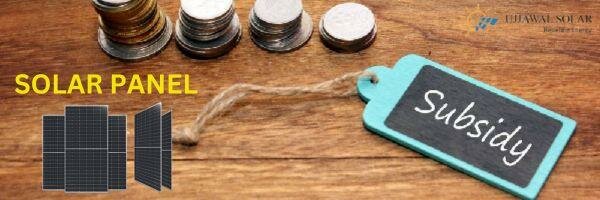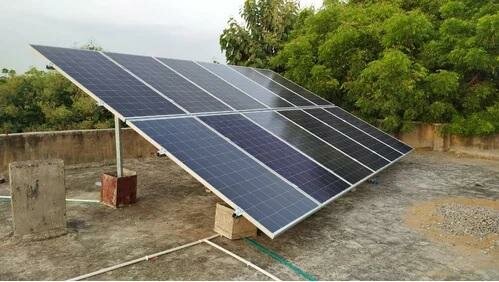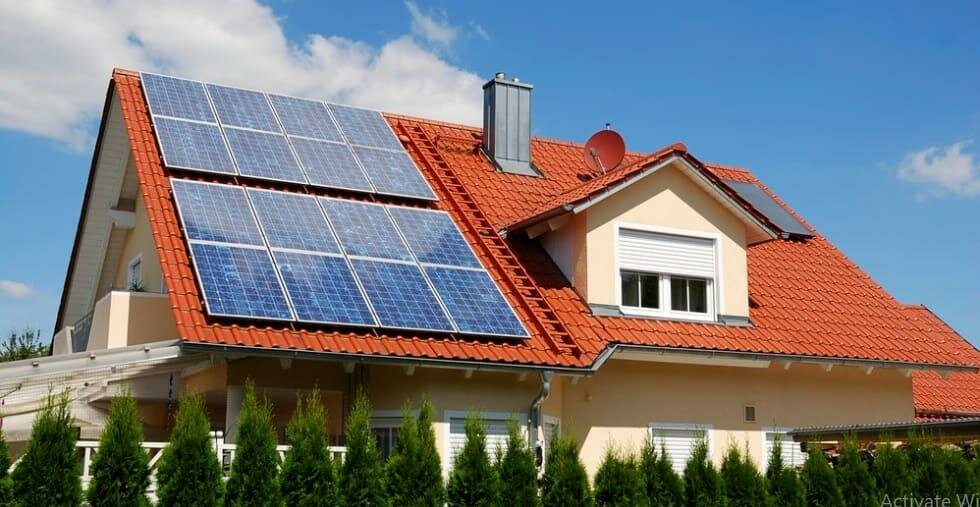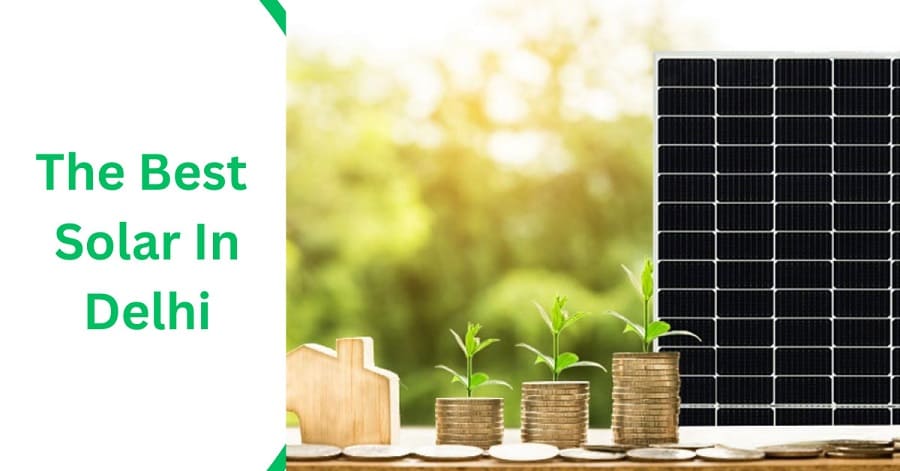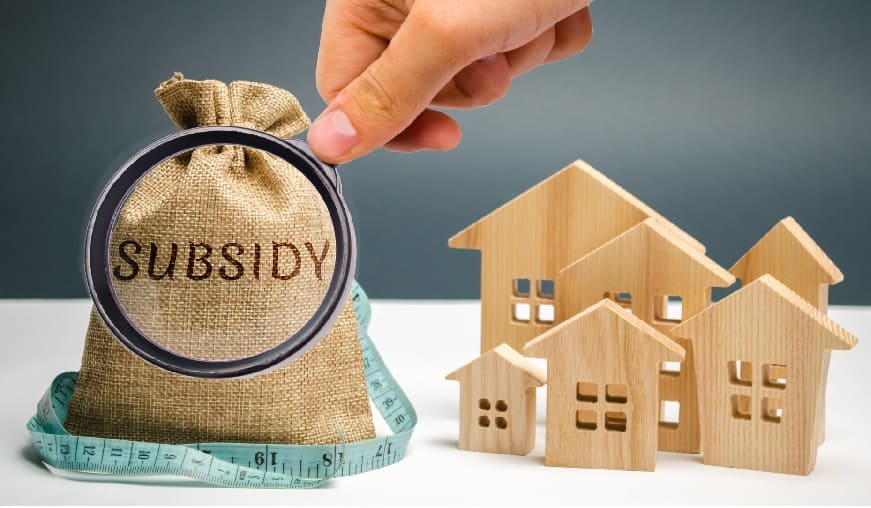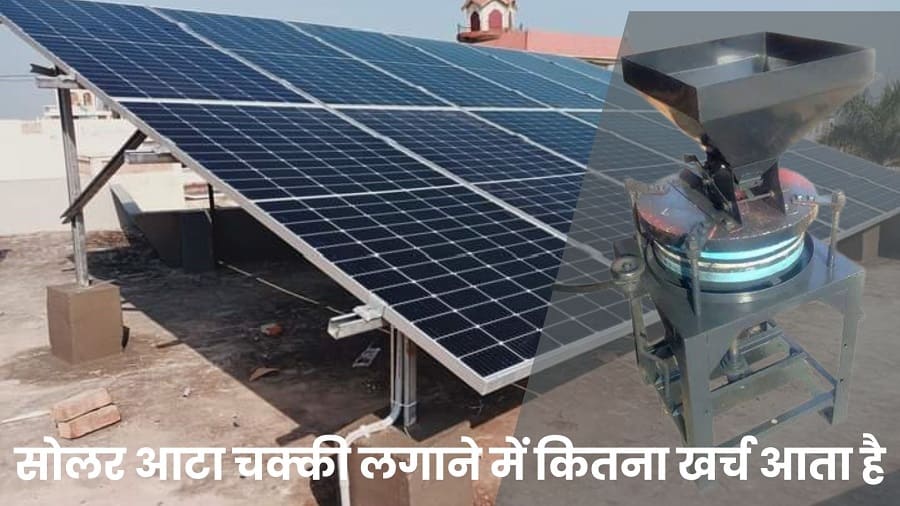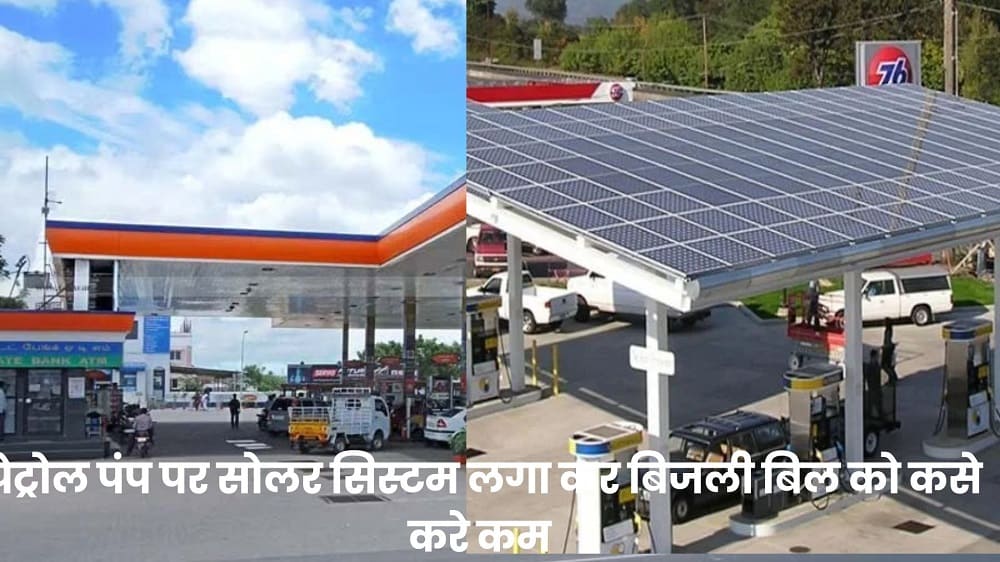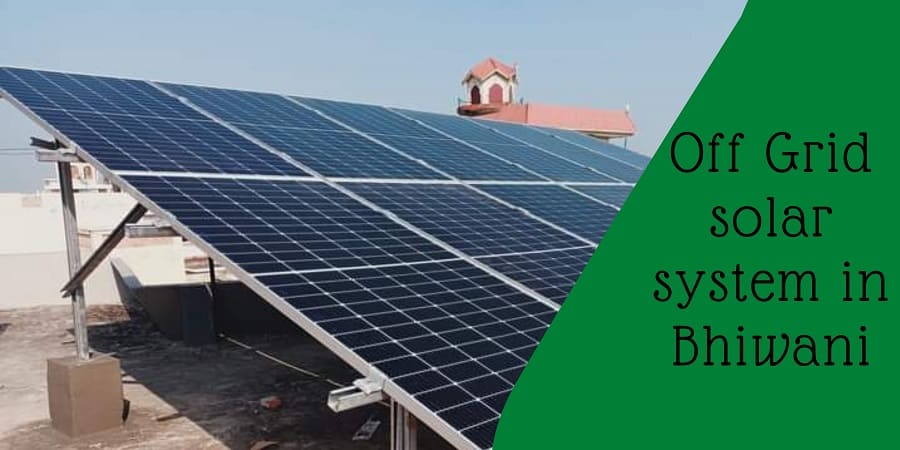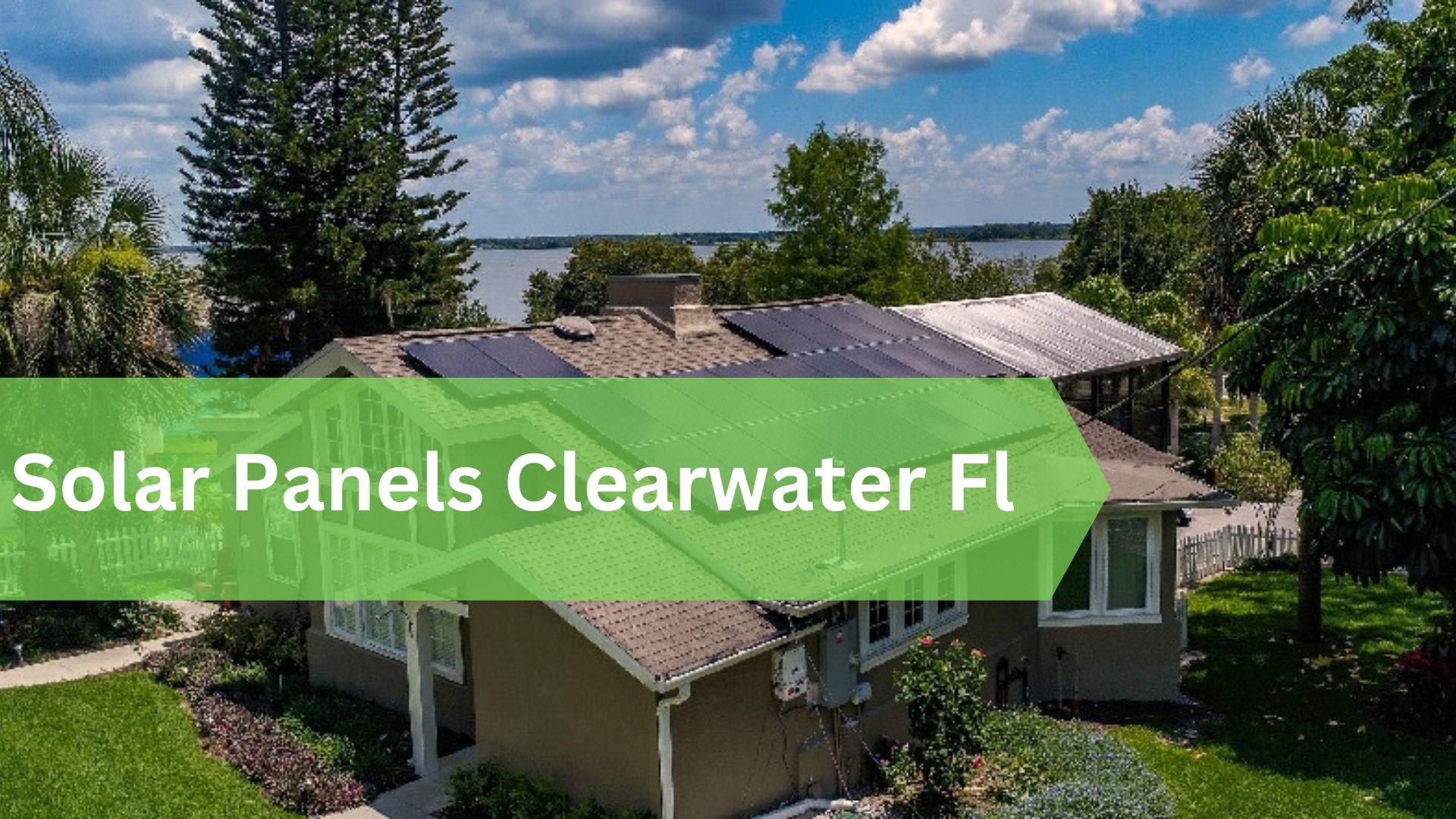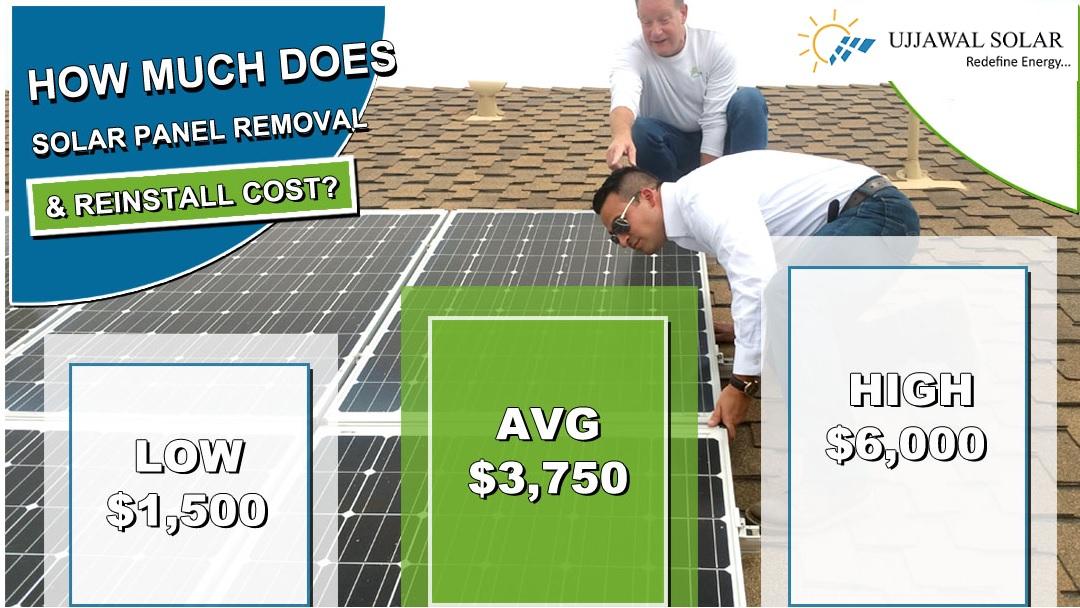Solar Panel Prices Udaipur – Solar panels have gained significant traction in Udaipur, Rajasthan, owing to the region’s abundant sun and the growing mindfulness of renewable energy benefits. Udaipur, known for its ample sun throughout time, presents an ideal setting for employing solar power. Solar panels, generally installed on rooftops or in open areas, convert the sun into electricity, offering a sustainable and clean energy source. The application of solar panels in Udaipur contributes to reducing the reliance on conventional reactionary energies, mollifying environmental pollution, and bridling hothouse gas emigrations. also, solar energy helps in meeting the adding energy demands of domestic, marketable, and artificial sectors in the region, promoting energy security and sustainable development. The government’s enterprise and impulses for solar energy relinquishment further encourage individuals and businesses in Udaipur to embrace this eco-friendly energy result, contributing to a greener and more sustainable future.
Solar Panel Prices Udaipur
Solar Panel Prices Udaipur Rajasthan, can vary based on several factors including the brand, capacity, technology, and installation type. On average, the cost of solar panels in Udaipur typically ranges from INR 65,000 to INR 95,000 per kilowatt (kW) for residential installations. Commercial and industrial installations may have different pricing structures based on their specific requirements. It’s important to note that solar panel in udaipur can fluctuate over time due to changes in market conditions, government policies, advancements in technology, and other factors. To get the most up-to-date and accurate pricing information, I recommend reaching out to local solar suppliers, installers, or government agencies in Udaipur or Rajasthan. Additionally, you can compare quotes from multiple sources to ensure you get the best deal for your solar panel for home in udaipur installation.

How do solar panels convert sunlight into Electricity?
Solar panels use a process called the photovoltaic effect to convert sunlight into electricity. Here’s a step-by-step explanation of how this conversion occurs:
- Photon Absorption: Sunlight is composed of tiny particles of energy called photons. When sunlight reaches the solar panels, these photons are absorbed by the solar cells, which are typically made of silicon or other semiconductor materials.
- Electron Excitation: The absorbed photons transfer their energy to electrons in the semiconductor material, causing them to become energized and break free from their usual positions in the atoms of the material.
- Electric Potential: The energized electrons create an electric potential or voltage across the solar cell. This potential difference creates an electric field within the cell.
- Electron Flow: The energized electrons, now mobile due to the electric field, start to flow through the material, creating an electric current. This flow of electrons is what constitutes electricity.
- Direct Current (DC) Generation: The flow of electrons generates direct current (DC) electricity within the solar cell.
- Electrical Contacts: The solar cell has metal conductive contacts on its surface that capture the generated electric current and transfer it out of the cell for use.
- Solar Panel Composition: Multiple solar cells are interconnected within a solar panel. The electric current generated by each cell adds up when these cells are connected in a series or parallel configuration.
- Inverter Conversion: The DC electricity produced by the solar panel is then passed through an inverter, which converts it into alternating current (AC) electricity. AC is the standard form of electricity used in homes and businesses.
- Integration with Electrical Systems: The converted AC electricity is then integrated into the electrical system of a building or fed into the power grid for consumption.
By harnessing the energy from sunlight and converting it into usable electricity, solar panels provide a clean and renewable source of power, reducing the reliance on traditional fossil fuel-based energy sources and minimizing environmental impact.
How Much Money I Can Save Monthly by Using Solar Panels in Udaipur?
By using solar Systems, you can save a significant amount of money on your monthly electricity bills.
| Solar System | Units | Saving |
| 1kw Solar system Per Months Generation | 5 Units | 30-40 RS. Per Day |
| 1kw Solar system Per Months Generation | 150 Units | 900 – 1200 RS. Per Months |
| 1kw Solar system Per Year Generation | 1800 Units | 10800 – 14400 RS. Per Year |
Rajasthan Electricity Board (GEB) Units Rate
| Heads | Charges |
|---|---|
| Upto 150 kWh/month (Rs /kWh) | Rs 5.50 |
| 151-300 kWh/month (Rs /kWh) | Rs 6 |
| 301-500 kWh/month (Rs /kWh) | Rs 6.50 |
| Above 500 kWh/month (Rs /kWh) | Rs 7 |
Benifits of Installing Solar Panels for Homes in Udaipur?
Installing solar panels for homes in Udaipur, Rajasthan, offers numerous benefits, given the region’s abundant sunlight and the increasing focus on renewable energy. Here are some of the key advantages:
- Abundant Sunlight: Udaipur receives ample sunlight throughout the year, making it an ideal location for solar energy generation. Solar panels can harness this sunlight and convert it into electricity, reducing reliance on conventional power sources.
- Reduced Electricity Bills: Solar panels allow homeowners to generate their own electricity, resulting in reduced dependence on the grid. This leads to significant savings on monthly electricity bills, especially in a sunny region like Udaipur.
- Environmentally Friendly: Solar energy is a clean and renewable source of power that produces no greenhouse gas emissions or air pollutants. By using solar panels, homeowners contribute to reducing their carbon footprint and promoting a healthier environment.
- Government Incentives: Various government incentives and subsidies are available for installing solar panels, including tax credits, rebates, and subsidies. These incentives can significantly lower the overall cost of the solar system in udaipur, making it a more attractive investment.
- Energy Independence: Solar panels provide a degree of energy independence, allowing homeowners to generate their own power. This is particularly advantageous during power outages or in remote areas where the grid is not accessible or reliable.
- Property Value Increase: Installing solar panels can increase the value of a property. Potential homebuyers often find solar-equipped homes attractive due to the long-term cost savings on energy bills and the environmental benefits associated with solar energy.
- Net Metering: In many regions, including Udaipur, net metering is available, allowing homeowners to sell excess electricity generated by their solar panels back to the grid. This arrangement enables homeowners to earn credits or receive compensation for the surplus energy they produce.
- Long-Term Savings: Solar panels have a long lifespan and require minimal maintenance. Over the system’s lifetime, homeowners can save a substantial amount of money on electricity costs, resulting in a solid return on investment (ROI).
- Community Contribution: Using solar energy demonstrates a commitment to sustainable living and sets an example for the community. Encouraging the adoption of renewable energy sources can lead to a more sustainable and environmentally conscious neighborhood.
By considering these benefits and conducting a thorough assessment of the solar potential for their homes, residents in Udaipur can make informed decisions about investing in solar panels for a greener and more cost-effective energy future.
Also Read – Off Grid Solar System In Jaipur, Rajasthan, India
How I Can Reduce Electricity Bills in udaipur for my home?
Reducing electricity bills in Udaipur for your home involves implementing energy-efficient practices and making conscious choices to minimize energy consumption. Here are several effective ways to achieve this goal:
- Install Solar Panels: Consider installing solar panels on your property to generate your own electricity and significantly reduce dependence on the grid. Solar energy can lead to substantial savings on your electricity bills over time.
- Energy-Efficient Appliances: Upgrade to energy-efficient appliances with high Energy Star ratings. These appliances consume less electricity and can greatly reduce your overall energy usage and costs.
- LED Lighting: Replace traditional incandescent bulbs with LED lights. LED bulbs are highly energy-efficient and last longer, resulting in lower electricity consumption and reduced replacement costs.
- Energy Audits: Conduct a professional energy audit of your home to identify areas where energy is being wasted. This can help you pinpoint specific areas for improvement and prioritize energy-saving measures.
- Proper Insulation and Sealing: Ensure your home is well-insulated to maintain a consistent temperature, reducing the need for heating and cooling. Seal any gaps or cracks in doors, windows, and walls to prevent energy leakage.
- Use Natural Ventilation: Take advantage of Udaipur’s pleasant climate and use natural ventilation to cool your home instead of relying solely on air conditioning. Open windows and doors to allow fresh air circulation.
- Smart Thermostats: Install a smart thermostat to optimize your home’s heating and cooling systems. These devices can be programmed to adjust temperature settings based on your daily routine, reducing energy consumption.
- Efficient Cooling Systems: If using air conditioning, choose energy-efficient air conditioning units and regularly maintain them to ensure optimal performance. Clean or replace air filters to improve efficiency.
- Turn Off Unused Devices: Switch off lights, electronics, and appliances when not in use. Unplug chargers and devices that draw power even when turned off to eliminate “phantom” energy consumption.
- Utilize Natural Light: During the day, rely on natural light by opening curtains and blinds. This reduces the need for artificial lighting, leading to energy savings.
- Energy-Efficient Windows: Consider installing energy-efficient windows that offer better insulation and reduce the need for heating or cooling.
- Rainwater Harvesting: Implement rainwater harvesting systems to collect rainwater for non-potable uses like watering plants or cleaning. This reduces the demand on your water heater for such purposes.
- Optimize Water Heating: Set your water heater to a lower temperature and use cold water for washing clothes. Consider installing a solar water heater to utilize solar energy for water heating.
By incorporating these energy-saving practices into your daily routine and making strategic investments in energy-efficient technologies, you can significantly reduce your electricity bills in Udaipur while contributing to a more sustainable environment.
What are the Types of Solar Panels In Udaipur?
The choice of solar panel in Udaipur would depend on factors such as budget, available space, efficiency requirements, and specific project goals. It’s advisable to consult with a solar energy professional to determine the most suitable type of solar panels for your needs and location in Udaipur. In Udaipur, like other places, there are mainly 4 types of solar panels for homes available. Here are the most common types of solar panels used in Udaipur:
- Monocrystalline Solar Panels In Udaipur – Monocrystalline Solar Panels are Made from single-crystal silicon, making them highly efficient and space-effective. Have a sleek black appearance and are known for their high efficiency and durability. Ideal for small roofs or areas with limited space.
- Polycrystalline Solar Panels In Udaipur – Made from multiple silicon fragments, making them cost-effective to produce. Slightly less efficient than monocrystalline panels but still offers good performance. Have a blueish appearance and are a popular choice for residential installations in Udaipur.
- Thin-Film Solar Panels in udaipur – Made using thin layers of semiconductor materials like amorphous silicon, cadmium telluride, or copper indium gallium selenide (CIGS). Lightweight, flexible, and suitable for various applications, including building-integrated photovoltaics (BIPV). Less efficient than crystalline solar panels but can perform well in low-light conditions and high temperatures.
- Bifacial Solar Panels in udaipur – Can capture sunlight from both sides (front and back) of the panel, maximizing energy production. Ideal for installations with reflective surfaces or in elevated mounting configurations. Can enhance overall system efficiency and yield more energy compared to traditional single-sided panels.

What are the Types of Solar Systems in Udaipur?
In Udaipur, various types of solar systems are available to harness solar energy for different applications. Here are the main types:
- Grid-Tied Solar Systems in Udaipur
- Connected to the local electrical grid.
- Solar panels generate electricity, and excess can be fed back into the grid.
- Reduces reliance on the grid and can result in lower electricity bills.
- Ideal for areas with a reliable and stable grid.
2. Off-Grid Solar Systems in Udaipur
- Operate independently and are not connected to the electrical grid.
- Solar panels generate electricity stored in batteries for use when there’s no sunlight.
- Ideal for remote areas or locations with unreliable grid access.
- Provide energy self-sufficiency.
3. Hybrid Solar Systems in Udaipur
- Combine features of grid-tied and off-grid systems.
- Utilize solar energy, store excess in batteries, and connect to the grid as a backup or for additional power when needed.
- Offer energy reliability and potential savings on electricity bills.
- Suitable for areas with intermittent grid availability.
Solar Panel Prices for homes in Udaipur Rajasthan
Solar panel for home in Udaipur, Rajasthan, vary based on several factors, including the brand, capacity, technology, and installation specifics. On average, the cost of solar panels in Udaipur typically ranges from INR 25,000 to INR 45,000 per kilowatt (kW) for residential installations. However, it’s essential to note that prices can fluctuate due to changes in market conditions, government policies, technological advancements, and other factors. Additionally, the overall cost of a solar system in udaipur for a home also considers expenses for inverters, mounting structures, batteries (if off-grid or hybrid), installation, and maintenance. To obtain the most up-to-date and accurate pricing information, it’s recommended to contact local solar suppliers, installers, or government agencies in Udaipur. Comparing quotes from multiple sources can help in finding the best deal for a solar panel installation tailored to specific residential needs.
How do I apply for a Loan In Udaipur for Solar?
To apply for a loan in Udaipur to finance your solar panel installation, follow these steps:
- Research Loan Options: Conduct thorough research to identify banks, financial institutions, or organizations that offer solar loans or green energy financing options in Udaipur. Look for terms, interest rates, and eligibility criteria that suit your needs.
- Check Eligibility Criteria: Review the eligibility requirements for the specific loan program you’re interested in. Common criteria may include credit score, income, age, property ownership, and the type of solar installation.
- Gather Necessary Documents: Collect all required documents such as identification proof, income proof, bank statements, property documents, and any other documents specified by the lending institution.
- Contact Lenders and Inquire: Reach out to the chosen lending institutions or banks to inquire about their solar loan offerings. Clarify any doubts you may have regarding the loan terms, interest rates, repayment period, and application process.
- Fill Out Loan Application: Obtain the loan application form from the lender and complete it accurately and truthfully. Ensure all required information and supporting documents are attached.
- Submit Application and Documents: Submit the completed loan application along with the necessary documents to the lender’s designated office or online portal.
- Loan Processing and Approval: The lending institution will process your application, verify the provided information, and assess your eligibility. This may involve a credit check and property evaluation.
- Loan Approval and Disbursement: Upon approval, the lender will inform you of the approved loan amount, interest rate, and repayment terms. Once you accept the terms, the loan amount will be disbursed to you or directly to the solar installation provider.
- Proceed with Solar Installation: Use the loan amount to fund your solar panel installation. Coordinate with the solar installation provider to begin the project.
- Repay the Loan: Start repaying the loan according to the agreed repayment schedule. Ensure timely payments to maintain a good credit history.
- Monitor Solar Energy Savings: Monitor and track the savings on your electricity bills generated from your solar system in udaipur. Use these savings to help cover your loan repayments and enjoy reduced energy costs.
Also read – All About Benefits and Solar Panel Price Jaipur – Rajasthan
Make sure to carefully read and understand the loan terms and conditions before accepting any offer. It’s advisable to consult with financial advisors to make informed decisions regarding solar financing and loans.
How to Apply For Net Meters In Udaipur?
To apply for a net meter in Udaipur or any other location in India, follow these steps to initiate the process:
- Contact Your Electricity Distribution Company (DISCOM): Reach out to the local electricity distribution company in Udaipur to gather information about the net metering process, required documents, and application procedures.
- Understand Net Metering Guidelines and Policies: Familiarize yourself with the net metering policies, rules, and regulations set by the respective state government. In Rajasthan, the policies can change, so it’s important to have up-to-date information.
- Consult a Solar Installer or Vendor: Collaborate with a solar installer or vendor who is accredited and experienced in setting up solar systems and net metering connections. They can guide you through the process and assist with the application.
- Assess Your Solar Installation Eligibility: Ensure that your solar installation meets the eligibility criteria set by the DISCOM and the state government. Confirm that your system size aligns with the maximum permissible capacity for net metering.
-
Complete Required Documentation: Prepare and gather all the necessary documents required for the net metering application. Common documents may include:
- Completed application form for net metering
- ID proof and address proof
- Copy of recent electricity bill
- Site plan and layout of the solar installation
- Solar system specifications and technical details
- No Objection Certificate (NOC) from the property owner (if applicable)
- Submit the Application: Submit the completed application form along with the required documents to the designated office of the DISCOM. Ensure all documents are accurate and complete.
- Application Review and Site Inspection: The DISCOM will review your application and conduct a site inspection to verify the solar installation and assess its suitability for net metering.
- Approval and Installation of Net Meter: If the application is approved, the DISCOM will install a net meter at your premises. This meter will measure the electricity generated by your solar panels and the electricity consumed from the grid.
- Connection to the Grid: Once the net meter is installed, your solar installation will be connected to the grid, and you can start generating solar energy.
- Monitor Your Energy Production and Consumption: Keep track of the energy produced by your solar system and the energy consumed from the grid through the net meter.
- Avail Benefits of Net Metering: Enjoy the benefits of net metering, including offsetting your electricity bills and potentially earning credits for excess electricity exported to the grid.
Ensure to stay updated with the latest net metering guidelines and requirements in Udaipur or Rajasthan to ensure a smooth net metering process.
Also Read – Solar In Jodhpur – Solar Panel Price Jodhpur – Rajasthan
How does solar help in farming in udaipur?
Solar energy can significantly benefit farming practices in Udaipur and similar regions in various ways, promoting sustainability, cost-efficiency, and environmental conservation:
- Irrigation: Solar-powered irrigation systems can pump water from wells or surface water sources to irrigate fields. Solar pumps are reliable, and cost-effective, and reduce farmers’ dependence on non-renewable energy sources.
- Crop Drying: Solar dryers can be used to dry crops efficiently and reduce post-harvest losses. Solar dryers utilize the sun’s heat to dehydrate crops, enhancing their quality and storage life.
- Greenhouse Operations: Solar energy can power greenhouse operations, maintaining optimal conditions for growing plants. Solar heating and cooling systems help control temperature and humidity, promoting year-round cultivation and improving crop yields.
- Livestock Operations: Solar-powered fencing and lighting can enhance livestock management. Solar lights in sheds or barns ensure adequate lighting for animals, and solar-powered electric fencing helps in efficient livestock containment and protection.
- Poultry and Aquaculture: Solar energy can provide power for incubators, water pumps, aerators, and other equipment crucial for poultry farming and aquaculture. This ensures reliable and continuous operation, promoting the healthy growth of livestock and fish.
- Remote Farming Applications: Solar power can be used for remote monitoring and control of farm equipment, weather stations, and security systems. This allows farmers to monitor their farms more effectively and make data-driven decisions.
- Rural Electrification: Solar power can extend electricity access to remote and off-grid farming communities. Solar mini-grids can power homes, schools, and local businesses, enhancing the overall quality of life in rural areas.
- Income Generation: Farmers can generate additional income by selling excess solar power to the grid through net metering, contributing to a sustainable economy and reducing the cost of their own electricity consumption.
- Reduced Operating Costs: Implementing solar energy reduces operational costs associated with fuel and electricity bills, enhancing the profitability of farming ventures.
- Environmental Benefits: Solar energy is a clean, renewable source, reducing reliance on fossil fuels and lowering the farm’s carbon footprint. It contributes to a sustainable and eco-friendly farming model.
- Government Incentives: Various government schemes and incentives encourage farmers to adopt solar energy, providing subsidies, grants, and tax benefits for solar installations. These incentives can significantly reduce the overall cost of adopting solar technologies.
By integrating solar power into farming practices, farmers in Udaipur can improve productivity, reduce costs, enhance sustainability, and contribute to a greener and more prosperous agricultural sector.
Also Read – What are the Solar Panel Price Kota Rajasthan – Ujjawal Solar
Conclusion
solar energy holds immense promise and potential for Udaipur, Rajasthan. The city’s abundant sunlight throughout the year positions it favorably for the widespread adoption of solar power. By embracing solar energy, Udaipur can reduce its dependence on conventional fossil fuels, minimize its carbon footprint, and contribute to mitigating climate change. Moreover, solar power offers a sustainable solution to the city’s growing energy needs, paving the way for a greener and more environmentally conscious future. Government incentives and increasing public awareness further support the transition to solar energy, making it an economically viable and socially responsible choice. With its potential to drive economic growth, improve energy access, and protect the environment, solar energy stands as a key player in propelling Udaipur towards a sustainable and prosperous tomorrow.
Faq for a solar panel for home udaipur
Q: What are the benefits of installing solar panels for my home in Udaipur?
A: Solar panels help reduce electricity bills, provide a clean and renewable energy source, contributing to environmental sustainability, increase property value, and potentially earn revenue through excess energy production.
Q: How do solar panels work for a residential setup in Udaipur?
A: Solar panels convert sunlight into electricity through the photovoltaic effect, generating direct current (DC) electricity. An inverter then converts DC electricity into alternating current (AC), which is used to power household appliances.
Q: What factors should I consider when choosing solar panels for my home in Udaipur?
A: Factors include the solar panel type (monocrystalline, polycrystalline, thin-film), efficiency, durability, warranty, cost, available roof space, and energy consumption.
Q: How many solar panels do I need for my home in Udaipur?
A: The number of solar panels needed depends on your energy consumption, the efficiency of the panels, and the available rooftop space. A solar installer can perform a site assessment to determine the appropriate capacity.
Q: Is net metering available for residential solar panel installations in Udaipur?
A: Yes, net metering is available, allowing homeowners to feed excess electricity generated back into the grid and earn credits for future use.
Q: Are there government incentives or subsidies available for residential solar installations in Udaipur?
A: Yes, the government offers various incentives, including subsidies, tax benefits, and low-interest loans to encourage solar adoption.
Q: What is the expected payback period for a residential solar panel system in Udaipur?
A: The payback period varies based on factors like system cost, energy savings, incentives, and electricity rates. Typically, residential solar systems achieve payback within 5 to 10 years.
Q: How do I maintain and care for my solar panels in Udaipur?
A: Regular cleaning, monitoring for any shading or damage, and occasional professional maintenance are essential to ensure optimal performance and longevity of your solar panels.
Q: Can I install solar panels on a flat roof in Udaipur?
A: Yes, solar panels can be installed on flat roofs using specialized mounting systems designed for such installations.
Q: How do I find a reliable solar panel installer in Udaipur?
A: Research local solar installers, read reviews, ask for referrals, check certifications, and compare quotes to choose a reputable and experienced solar panel installer.


